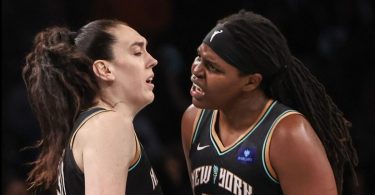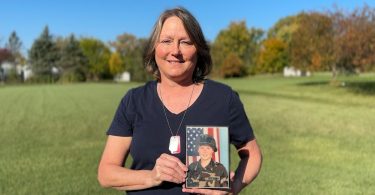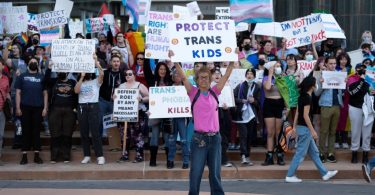How important are labels? Would you prefer to live in a world without them – or do you take comfort in identifying as part of a larger group?
This was just one of the topics discussed as part of a workplace panel discussion organized for this year’s Digital Pride festival (23-28 April).
The event was coordinated by RBS, with support from Fujitsu. The discussions featured participants at RBS offices in the city of London and Edinburgh, with further contributions from RBS employees in India. Liam Fogarty, Inclusion Manager, RBS, chaired the event.
In discussions to be aired on Gay Star News’ social media over the course of the week, the panelists explored the importance of allies, labels and role models in the modern workforce.
[embedded content]
Allies
All those present agreed that allies are important, provided it goes beyond the mere symbolism of wearing a badge or lanyard.
‘Allies are critical to driving the LGBT agenda in RBS,’ said Alan Mochrie, Inclusion Manager, RBS. ‘They recognize the challenges our LGBT colleagues and customers face every day and they use their influence and network to promote inclusion. They also show how to combat homophobia, biphobia, transphobia in a visible way.’
He said allies undergo training in recognizing unconscious bias, and are encouraged to educate others on inclusion – not in a preachy way but in a knowledgeable way.
Ori Chandler, MD at Involve agreed: ‘It’s absolutely essential that allies call out discriminatory behaviors, prejudice, challenge unhelpful stereotypes and demonstrate support for the LGBT community.’
‘If you’re the minority you need to be working with the majority to change that,’ said Jake Laws of Stonewall Scotland. ‘When you look back though the history of any social movement, allies have been key to taking forward that agenda … Keeping LGBT voices at the heart of everything you’re doing.’
Marjorie Strachan, global head of Inclusion, RBS, said authenticity is key to being an effective ally, and stepping up when required: ‘We’ve all got a responsibility to call out examples of bias or discrimination.’
Labels
There has been a proliferation of labels in relation to gender and sexuality. Are labels still important?
Yes, very much so, according to the panellists. They acknowledged that different generations have different attitudes towards labels, but it’s possible to respect them all.
Do we still need labels in a multigenerational workforce?
‘Millennials really are expressing queer identities in a whole new way,’ said Rishi Madlani, Global co chair of RBS Rainbow Network.
‘As a person of color, I recognise when I walk into a room, people see that immediately. When you’re LGBT, being a non-visible strand, you need something to be able organize with and I see a lot of people getting very passionate about how they’re organizing their LGBT identities and being very proud of that.’
Karen Flynn-MacFarlane, Global co-chair RBS Rainbow Network, gave a personal perspective on why she felt labels remained important.
‘I think for me labels are important because growing up it wasn’t that easy and people weren’t quite as accepting, so it was good to have something to identify the group you could go to for support, that you could go to for hanging out with, for experiences, for talking through difficulties and challenges.
‘And I think that in the UK it can be easy to forget that it’s not that easy everywhere. It’s important to be that visible label to people where it’s not as easy to be LGBT. ’
Jake Laws says that he prefers the term identities rather than labels, as a label can have a negative connotation: they are something that others impose on you. In an ideal world, we wouldn’t need them, but he believes we’re far from an ideal world
Melanie Woolfenden, Co-chair Fujitsu Shine Network, agrees that in an ideal world we might not need labels, but questioned whether that was ever possible. She asked if it is human nature to categorize others.
‘We like to box things up. We conceptualize things. Ideally we don’t want labels … but people like to categorize people with some sort of label so they can understand them and know how to deal with them.’
In a pre-recorded contribution from RBS offices in India, Vikas Goel, India LGBT workstream lead said, ‘Labelling has always been used in society to reference people who are fighting for a cause, who have different ideologies, so labels by itself is not a bad thing. What is important is the intent with which the label is being used.
‘Labels should not be used to stereotype people, because everyone is unique. And they should not be used to carry bias against people just because they’re different than us.’
Role models
The final part of the discussion moved on to role models, with all the panelists agreeing that role models are very important, and that senior role models particularly so. However, when it comes to senior LGBTI figures, there remains a lack at the top of the business tree.
Ori Chandler pointed out that with Christopher Bailey leaving Burberry, there are no LGBTI CEOs in the FTSE 100, and only two in the Fortune 500: ‘Leaders set the tone,’ she noted. ‘Set the culture.’
Melanie Woolfenden said visible leaders are of great importance. She recalled that on Trans Day of Visibility recently, several senior managers changed their profile picture on internal social media to include a trans flag filter.
‘It was a real visible way to show solidarity with our trans and our LGBT staff, and from that people began to ask questions … it enabled them to speak.’
Marjorie Strachan said that role models filled a void: ‘You can’t be what you can’t see,’ at the same time recognizing, ‘that not everyone wants to be a role model.’
‘You can’t force someone to be a role model, in the same way you can’t force someone to come out of the closet,’ agreed Jake Laws. However, he also pointed out that people looking to join companies are increasingly looking to see if those have LGBTI role models, to help them decide whether they can see themselves there.
RBS is a client of Gay Star News.







